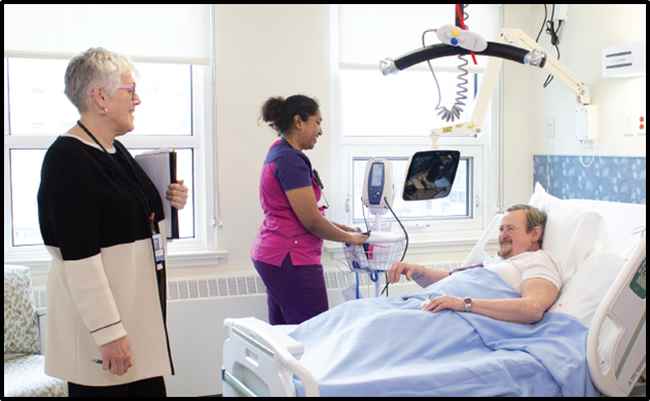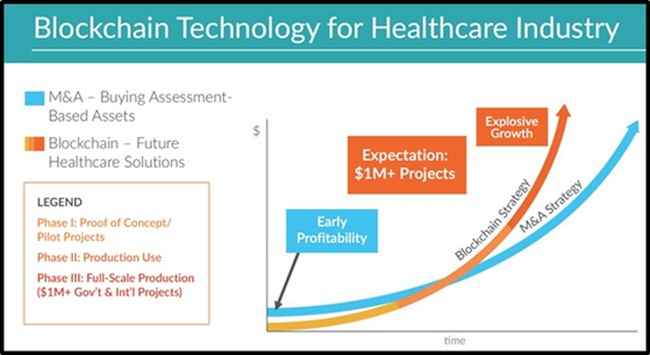In October 2016, a Toronto-area woman named “Fanny” was being treated for “a tangle of abnormal and poorly formed blood vessels that can occur in the brain.”
She then suffered a life-threatening stroke – followed by a frightening crescendo of medical traumas – before she was admitted to The Salvation Army Toronto Grace Health Centre (TGHC), for rehabilitation in January 2017.
At that time, Fanny could not speak, or chew or move.
TGHC is a doing God’s work – operating a 119-bed facility in the heart of downtown Toronto – providing care for individuals with multifaceted chronic diseases who require Complex Continuing Care, Post-Acute Care Rehabilitation and Palliative Care.
The Excellent Care For All Act (2010) requires that all Ontario hospitals publish a Quality Improvement Plan (QIP) – which covers the following dimensions: Effective, Efficient, Equitable, Patient-Centred, Safe and Timely.
As part of this quest for improvement, TGHC began looking for “a comprehensive, web-based Electronic Health Record that would support their patient’s journey and allow caregivers to provide seamless, integrated care across their organization from pre-registration through to discharge.”
Enter VitaHub (VHI.V) – which marries medical information networks with blockchain technology.
On January 02, 2019, VitalHub announced the sale of B Care to TGHC.
“B Care”, is a flexible web-based solution providing an ability to leverage existing processes and workflow.
The B Care platform overcomes the limitations of paper-based records and provides clinicians with productivity gains – enabling faster access to patient records while eliminating the shuffling of paper records between clinics. This allows physicians to spend more time with patients.
This project with VitalHub is being deployed in three phases.
Phase 1: Implementation of the ADT (Admission, Discharge and Transfer), EMPI (Enterprise Master Patient Index) and various interfaces to third party systems.
Phase 2: Clinical Documentation including a variety of canned assessments.
Phase 3: Deployment of the Pharmacy Information System, Order Entry and eMAR (Electronic Medication Administration Record).
The revenue associated with the three phases of this project is anticipated to exceed $1 million with approximately 60% of that total allocated to software licensing.
TGHC has contractually committed to Phase One, with the intent to deploy the other phases over a period of 18-24 months.
The “medical information network” status quo is – technologically speaking – a wounded dinosaur. Nurses are still faxing medical reports to their colleagues in other institutions.
The medical industry is crying out for a savior. VHI could be that savior. You can watch the VHI CEO Dan Matlow on YouTube explaining his mission.
“Our vision at the Grace is to provide an integrated EMR solution that will not only improve efficiencies across the facility but will provide excellent healthcare for our patients with better clinical decision-making tools for our clinicians,” stated Ralph Anstey, CFO, TGHC. “The B Care software will enable TGHC to fulfil this vision.”
“Toronto Grace hospital joins a large community of VitalHub customers in Ontario and the rest of Canada that have chosen to deploy B Care to meet their electronic health record requirements,” stated Matlow.
Vital Hub is designed to add value to medical organizations, like TGHC, that require cost effective, scale-appropriate solutions at a fraction of the cost typically paid by large hospitals.
VHI’s robust two-pronged growth strategy, targets growth opportunities within its product suite while pursuing an aggressive M&A plan.
On July 31, 2018, VHI sold B Care Electronic Health Record to support William Osler Health System’s cardiac care program. Osler serves 1.3 million residents of Brampton, Etobicoke and surrounding communities.
According to Canadian Centre for Addiction and Mental Health, the economic burden of mental illness in Canada is estimated at $51 billion per year, including health care costs and lost productivity.
With the mentally ill, the need for centralised records is amplified, because the patients are usually incapable of summarizing their own clinical histories.
Mentally ill patients migrate from city to city and often don’t remember what medications they have taken, for how long, in what doses, with what results or contra-indications.
On August 21, 2018 VHI announced the sale of the TREAT EHR solution to a Toronto-based young adult mental health agency.
According to the Decision Research Group, “Industry projections expect the global Blockchain Healthcare market to grow to $2.3 billion by 2021, up from roughly $340 million in 2017.”
On November 26, 2018 VHI released its Q3, 2018 financials (ended September 30, 2018).
Q3, 2018 VHI Financial Highlights (figures rounded):
- Revenue of $2.1 million
- Revenue increase of 1,224% over the same period last year.
- Revenue increase of 14% over Q2, 2018
Fanny has been at the TGHC for over a year. “When my mother first arrived, she could not talk or eat, and she was unable to move,” stated Fanny’s daughter. Fanny has gradually begun to communicate and is now able to eat and drink.
VitalHub is partnering with TGHC to provide even better care to patients like Fanny.
The Toronto-based VHI serves 200+ clients across North America. It has an offshore innovation hub in Sri Lanka.
VHI is trading at .14 with a market cap of $18 million. It’s been trading sideways for a year. We think Matlow and his team are onto something. And so does this important Toronto hospital.
Full Disclosure: VitalHub is an Equity Guru marketing client, and we own the stock.



